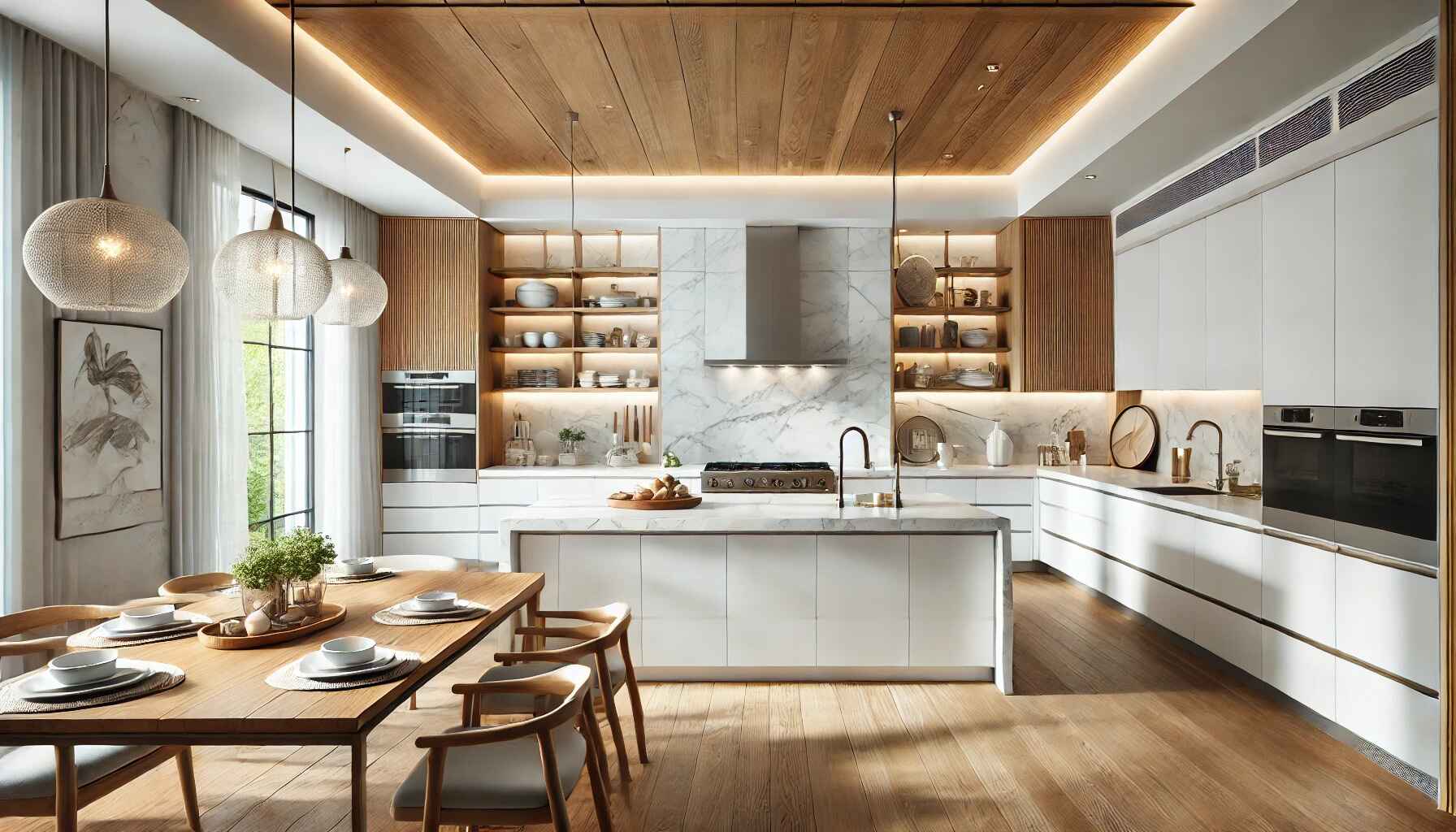When it comes to designing the heart of a luxurious home white and wood kitchen designs, the combination of white and wood has emerged as a timeless and sophisticated choice. This blend offers a perfect balance of modern elegance and rustic charm, creating a warm and inviting atmosphere while maintaining a sleek, contemporary look. Let’s explore why white and wood kitchen designs have become a favorite among homeowners and designers alike.
The Allure of White and Wood
White kitchens have long been associated with cleanliness, simplicity, and a sense of openness. The color white reflects light, making spaces appear larger and brighter. In luxurious homes, where space is often abundant, the use of white can enhance the feeling of grandeur and elegance. However, an all-white kitchen can sometimes feel sterile and impersonal. This is where wood comes into play.
Wood introduces warmth and texture to the space, counterbalancing the coolness of white. Whether it’s through wooden cabinetry, flooring, or accent pieces, wood adds a natural element that makes the kitchen feel cozy and inviting. The rich grains and various shades of wood can complement any style, from traditional to modern, ensuring versatility in design.
Key Elements of White and Wood Kitchens
- Cabinetry and Shelving: Combining white cabinets with wooden countertops or vice versa can create a striking visual contrast. Open wooden shelves against a white backsplash provide both functionality and aesthetic appeal, allowing for the display of kitchenware or decorative items.
- Countertops and Islands: A kitchen island with a wooden base and a white marble countertop becomes a focal point in the room. The natural veins of marble paired with the organic feel of wood exude luxury and sophistication.
- Flooring: Wooden floors in a kitchen not only add warmth but also continuity to the design, especially in open-plan living spaces. Light-colored woods like oak or maple keep the room airy, while darker woods like walnut offer a more dramatic effect.
- Accents and Details: Incorporating wood in smaller details, such as handles, trims, or light fixtures, can subtly enhance the overall design. Wooden bar stools or dining tables paired with white cabinetry can complete the look, adding a cohesive yet dynamic feel to the space.
Benefits of White and Wood Kitchens
The combination of white and wood in kitchen design is not just about aesthetics; it also offers practical benefits. White surfaces are easy to clean and maintain, making them ideal for a kitchen environment. Meanwhile, wood is durable and can withstand the wear and tear of daily use. Together, they create a kitchen that is both functional and beautiful.
Furthermore, this design approach is highly adaptable. It can be tailored to suit various tastes, whether you prefer a minimalist Scandinavian look or a more traditional farmhouse style. The flexibility of white and wood allows homeowners to personalize their kitchens, making them truly unique.
Creating Harmony in Design
Achieving harmony in a white and wood kitchen design requires careful consideration of proportions and balance. Too much white can make the space feel cold, while an excess of wood can overwhelm it. The key is to find a balance that suits the specific space and the homeowner’s preferences.
Incorporating different textures and finishes can also enhance the design. For example, matte white cabinets paired with glossy wooden countertops create a pleasing contrast. Additionally, mixing different types of wood, such as combining oak with walnut, can add depth and interest.
Conclusion
White and wood kitchen designs have become a hallmark of luxurious homes for good reason. They offer a blend of elegance and warmth, functionality and beauty. This timeless combination not only enhances the aesthetic appeal of the kitchen but also ensures it remains a welcoming space for family and friends. By thoughtfully integrating these elements, homeowners can create a kitchen that is both a practical workspace and a stunning centerpiece of their home.

